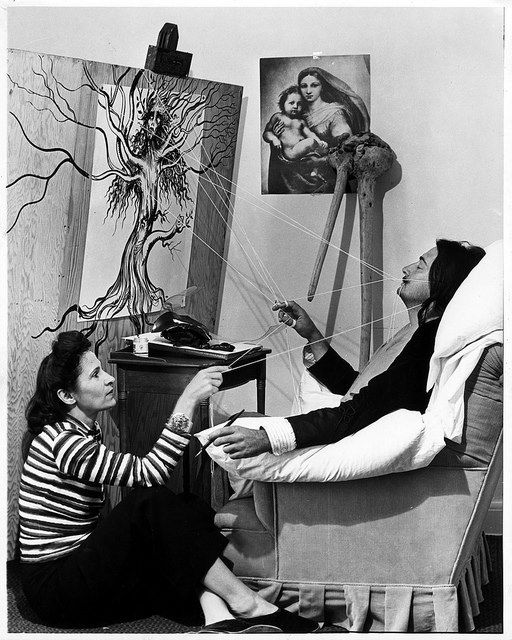
Sigmund Freud studied medicine at the University of Vienna and graduated with a MD in 1881. During his studies, he worked in several departments of the Vienna General Hospital, including that of Psychiatry. In 1885, the University of Vienna appointed him Privatdozent. Jean-Martin Charcot, a neurologist who taught Freud how to use Hypnosis to treat hysteria, was his mentor.
Superego
Sigmund Freud's concept of the Superego has been controversial. The superego, according to psychoanalysts of recent years, is not an identification between a parent and a woman. Freud claims instead that women's superegos never truly independent and are greatly influenced by emotion. It is also criticized for its apparent sexism.

Complex Oedipus
Oedipus was named after the Sophocles tragic Oedipus. Oedipus is left with the responsibility of taking care of his children and saving the world from starvation after the father of the story is killed. Oedipus, unaware of his father's murder, marries his mother and becomes entwined with them in a sad cycle. Oedipus’ mother, Electra aids her husband in killing his father. These two complexes collectively are called "Oedipal" or "Oedipaic", which refers to the underlying causes of Oedipus complex.
Libidinal energy
The fundamental part of our human nature is called Libidinal Energy. But how does it work? According to Sigmund Frud's Libidinalenergy theory, the ability of our mind to use psychic energy limits it. This energy is referred to as libido, and it fuels our thought processes. It is important to remember that libido does not equal autoerotism.
Symbolism
The symbolism theory of Sigmund Freud can be used in many ways. While rats are symbols for sexual intercourse, the metaphors aren't always so simple. Freud believed symbols needed to be understood as part of the context, and not as a substitute for the enemy' they represent. You can also use rat symbols to represent other things such as a penis or feces or a baby.

Regression
A common psychological defense mechanism is regression in Sigmund Freudian theories. A person can feel stuck in a stage of their development and regress. Some people experience a relapse due to mental illness or traumatic events. Other people regress as a way of coping with a heartbreak. Sandor Ferenczi, a psychoanalyst, stressed the importance of regression in psychotherapy. He believed that encouraging regression would encourage it.
FAQ
What examples of pop culture are there in 2021?
On the 11th of September 2001, two hijacked aircraft crashed into the twin towers at the World Trade Center in New York City. 9/11 would be the name of this day.
The popular culture influenced by the events of that day continues to be influenced today. It is easy to see how this event has impacted our lives in many different ways.
This includes television programs like 24 and movies like United 93 that tell the story the what happened during the flight between Boston and Los Angeles on 9/11. Dexter Filkins' The Forever War book is included.
All of us can recall where we were at the time that we heard about the attacks. Some people got up and went outside, while others read the newspapers or watched TV.
Pop culture is always changing. Pop culture is a reflection of society and an inspiration. What will happen to popular culture in the next year? We don't know yet. All we know is that it will be different than it was before.
Why is pop music so popular?
Pop music is very popular because it's fun! Pop music makes you feel happy, and it gives you a lot of freedom. Pop music allows people to be free from any limitations and think about only themselves. Pop music is not a distraction from what they think. Pop music is so beloved because of this. People like listening to songs that make them feel good. You can turn the radio on if you feel down. You may find yourself singing along. Pop music has been immensely successful over the years.
What examples of pop culture are there in 2020?
The music industry is changing rapidly, and this year we saw artists such as Billie Eilish, Post Malone, and Travis Scott all reach number 1 on Billboard's Hot 100 chart. This was an incredible feat for any artist.
The same applies to streaming services. Spotify reported streaming over 10 million hours of audio last year. This is almost five times the amount of content that users were listening too just five years prior!
This has led to a dramatic shift in how media is consumed. The majority of people now spend their time reading content, rather than creating it.
Everybody, from babies to old age, can now listen to high-quality audio content. Anyone can now record, edit, remix, and publish their music.
To play your favorite song you don't have a degree in classical music theory. You can download an app, add voice and upload to YouTube.
Even if you don’t want to create music yourself, why stop watching someone else do it? You will find many channels dedicated to creating videos of songs from covers to parodies.
How can we avoid the dangers of pop culture?
First, it is important to recognize when pop-culture influences us. It is important to recognize when pop culture influences us. Then, it is crucial that we do not allow ourselves to be influenced. Here are ways to help you stay away from bad influences:
-
Avoid watching violent shows like Game Of Thrones.
-
Avoid spending too much time surfing the Internet. Read books instead.
-
Pay less attention to television. Spend your spare time engaging in healthy activities.
-
Take care what you post online. Remember that you can never delete comments once they've been posted.
-
Make sure that any websites you visit are safe. Before you provide personal information, be sure to check them.
-
Don't allow anyone to pressure you into dangerous actions.
Talk to an adult about if you think you might be addicted to pop culture. Call your local library (1-800-883-THE-LOST) or the National Center for Missing & Exploited children (1-800-THE-883-LOOK).
What can pop culture teach us about ourselves?
Our society today is more concerned with material goods than everything else. This is especially true for younger people. They spend hours daily looking at screens. They are addicted to video games, movies, and surfing the web. All of this distracts them from focusing on school work. This leads to them failing classes.
In today's world, everyone wants to be accepted. That means being popular. Popularity is dependent on having money, clothes, or other possessions. Some people do this by doing things that aren’t right.
We have become dependent on technology. All information is available to us thanks to technology. Unfortunately, not all information can be trusted. False rumors are floating around the Internet. These rumors spread fast because people share them on social networking sites. It's easy and quick to post something without verifying whether it is true.
People have lost the ability of thinking critically. People believe everything they see on the Internet. They believe everything they read in magazines and on television. They stop thinking for them selves. Instead, they follow the flow of others.
We lose control over our lives when we rely upon others to tell the truth. Pop culture encourages us to rely on others. It also makes us lazy. Although the truth is out there and we often don't find it, it can make us lazy.
Who invented the word Pop Music?
Frank Zappa invents the term pop music. Pop music was his preferred style.
He said that he wanted music to appeal to everyone. This is why he called the music "pop music".
Zappa also created the phrase "You know it's POP when..." which means that something is really popular if many people enjoy it. Michael Jackson's Thriller is one example of the greatest-selling albums.
Zappa's definitions for pop music are quite different from the current. Today, pop music includes all types of music. But, there were only certain types of music that was considered pop back in those days.
What is popular culture in the world of music?
Popular Music Culture is a constantly-changing phenomenon that comes in many forms.
Popular music culture can be defined by its use certain types of music (e.g. rock, jazz) or lyrics. It also includes the influence of visual media (e.g., film, television and fashion) on artists' careers.
It's also the way that fans interact with their favorite musicians.
The rise of superstars - musicians who have made a name for themselves - is one aspect of popular music culture.
These icons transcend many genres and have become cultural icons. Their popularity has also influenced the development of popular music.
Other elements of popular culture in music include:
* The rise of recording technology -- from acoustic instruments and electric guitars to microphones and microphones.
* The inventions and use of the radio and record player;
* The dawn of rock 'n' roll;
* The introductions of film and television;
* The introduction of MTV and VH1
* The creation of internet.
Statistics
- Recently, the market share across Western Europe has ranged from 60-75% (Hopewell, 2013). (socialsci.libretexts.org)
- According to Kathryn Sorrells (2013, pp. 142-144), there are several ways that we can become informed consumers of popular culture. (socialsci.libretexts.org)
- In 1987, US films captured 56% of the European film market. (socialsci.libretexts.org)
- [17][18][19]Definition[edit]According to author John Storey, there are various definitions of popular culture. (en.wikipedia.org)
- For example, the term hater meaning someone who strongly undermines or criticizes others, often due to pathetic jealousy, likely emerged from hip hop culture, such as the term playa hateras, used by influential rapper Biggie Smalls as early as 1995. (simplicable.com)
External Links
How To
What is pop culture and how does it relate to movies?
Popular Movies Culture encompasses all aspects Entertainment - books, magazines newspapers, television programs and websites.
Movies can be categorized into several types: comedy, drama, horror, action/adventure, fantasy, science fiction, romance, thriller, war, documentary, animation, and westerns.
Movie plots often follow a predictable series of events that lead to satisfying conclusions.
How well a film follows this formula will determine its success.
Some common plot points are:
-
A protagonist who has to overcome obstacles in order achieve his/her goal.
-
A villain who opposes a protagonist throughout the film.
-
A moral dilemma that forces the protagonist to make a choice.
-
The twist that ends all.
You might need to reevaluate what your story is about before you begin to write.
These are the questions you should pay attention to:
-
How do I establish my setting?
-
What does my protagonist want?
-
Why should readers care?
-
Where is my story going?
-
Who is my main person?
-
What about conflict?
-
What is the climax
-
What is my resolution?
-
Is the ending happy or sad?
-
Do I want to introduce characters?
-
Are there multiple settings for my story?
-
Are there subplots?
-
Are there major themes?
-
Can I tell the whole story in one chapter?
-
Am I using dialogue effectively?
-
Does my language sound clear and simple?
-
Is my vocabulary appropriate for the context?
-
What if I have used active voice, instead of passive?
-
Are there spelling or grammar errors?
-
Is my grammar correct?
-
Are there too few adverbs in English?
-
Are there any other things I could do?
-
What is your first impression after I finish editing?
Your job is to not only create a book that's good, but to also get it published.